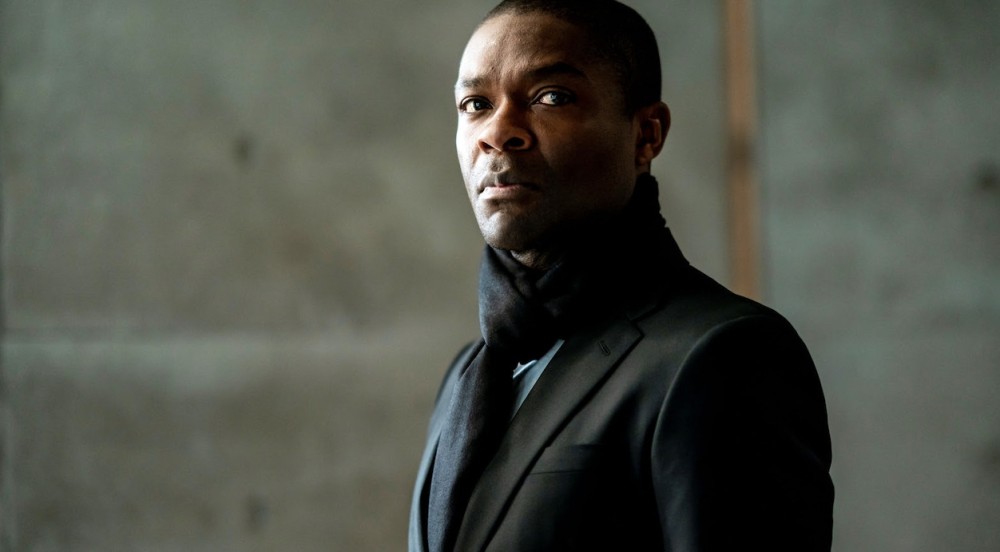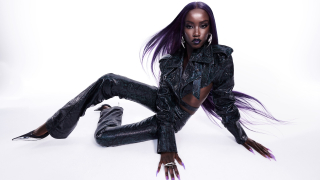David Oyelowo plays the nice guy in a lot of his roles. Sometimes he’s even an iconic one. Martin Luther King, Jr. in Selma immediately comes to mind. That’s not quite the case in The Girl Before, the HBO Max limited series in which he stars with his friend Gugu Mbatha-Raw and fellow British actor Jessica Plummer. Based on the international bestseller of the same name that premiered on British television back in December, Oyelowo is quite aware that a psychological thriller like this one would not typically star Black actors and that he would not normally play a role as dark as that of Edward. Mbatha-Raw, he shares, felt it was a challenge in which he would excel. And he couldn’t agree more.
“I was being afforded a character, as she said, the likes of which I just hadn't had the opportunity to play before,” Oyelowo explains to EBONY. “And I've been doing this a decent amount of time now. So, it's hard to think of too many things that I haven't done a version of, and this just was a completely new experience.”
In it, Edward is a renowned architect who has designed a home that is a minimalist masterpiece with a highly advanced tech infrastructure. As amazing as the house is, it’s largely unoccupied. But not because no one wants to live in it, especially at the extremely discounted price. Instead, Edward is highly particular, requiring a questionnaire and interview for acceptance. But, most intriguing, he has a deeply personal reason for it all.
“Edward is someone who has suffered a big loss in his life, his wife [and son] died accidentally, and he has something called repetition compulsion, which means he keeps going back to the moment of his biggest trauma trying to fix it,” shares Oyelowo. “So, he has built this house that he uses to lure these women who are reminiscent of his wife in the form of Jessica Plummer as Emma and Mbatha-Raw as Jane. And he's essentially trying to rebuild his life with someone who's reminiscent of his wife. But of course, that's impossible [because] everyone is different.
“And he happens to attract women who are dealing with their own traumas as well,” he continues. “Emma has dealt with a devastating abuse to her person, and Jane has suffered a huge loss to herself. And so the traumas of these three people bleed into the relationships they have with each other and inform some of what you see through the course of the show, some of which has a devastating result.”
There’s another catch: Emma and Edward’s involvement predates Edward and Jane’s by three years, but the stories are told concurrently, with Edward and the house connecting the two. Emma also entered the home with the added complication of her boyfriend Simon, whereas Jane came solo. Emma’s fate, like that of Edward’s wife and child, adds complexity to Edward but not necessarily in a good way.
“He's clearly able to attract these two women who he goes on to have relationships with, but he's also a very questionable guy, the kind of guy who you may question why these women are drawn to him, and so that, in and of itself, is a contradiction,” Oyelowo explains. “And I found him, certainly on the page, to be a series of contradictions, someone who really values excellence and beauty, things that are aesthetically pleasing, but has a kind of edgy, spiky, exacting attitude about him that isn't particularly beautiful, while also being quite charming.”
To nail the more extraordinary and noncontroversial aspect of Edward as a brilliant architect, Oyelowo shares that “I reached out to my friend David Adjaye, who is a very big-name architect [as the man behind the National Museum of African American History and Culture]. And he said it's true that there are very, very few Black renowned architects. And he also confirmed that being a bit of a control freak is definitely an occupational hazard as an architect.
“You have a lot of responsibility [because] these buildings need to have integrity,” he explains further. “You have to tell people what they should do, how they should do it. And you can have a bit of a God complex as an architect. [He said] you see these giant celebrated structures that you designed and you're walking around or driving around going, ‘Look, I built that and that and that.’ The effect that has on the ego creeps into relationships, creeps into how you see the world and how you see yourself.”
For Oyelowo, highlighting this complexity over 20 years later in his acting career speaks to not just a new challenge, but also to the evolution of the non-racialized material now available to Black actors. “The race of the characters is not necessarily a theme of the show,” he says. “We're normalizing the fact that these people of color are operating in these places and spaces that we've tended not to see people of color in. For me, the normalization of that is a huge part of what I want to continue to do with my career.”
Ronda Racha Penrice is the author of Black American History For Dummies and editor of Cracking The Wire During Black Lives Matter.













